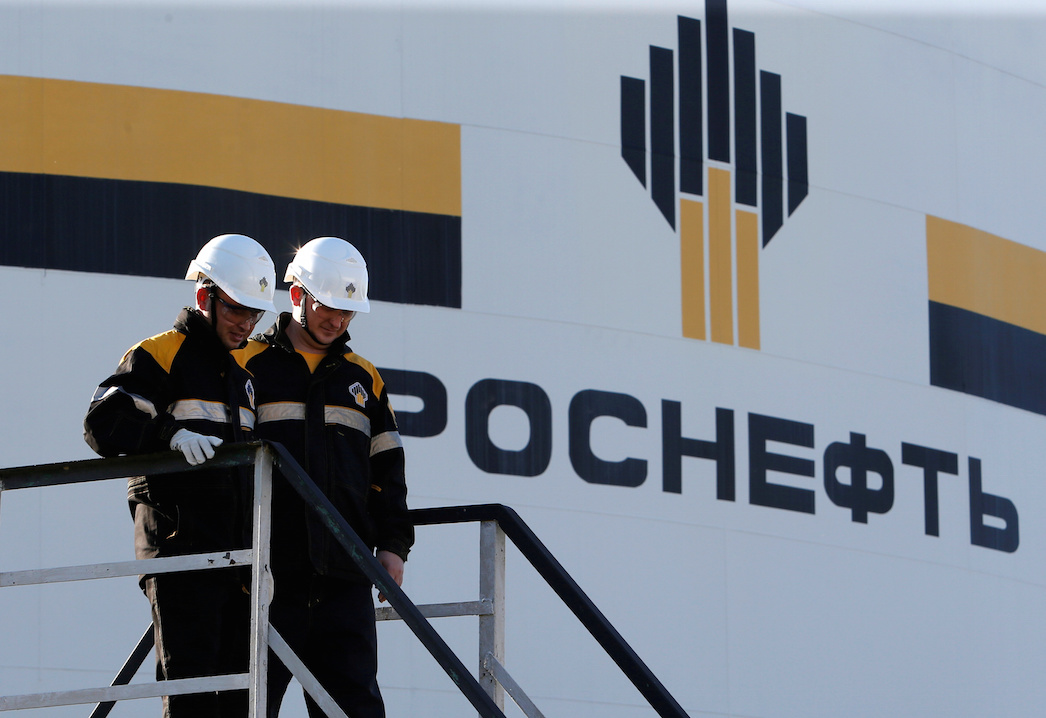BP to offload stake in Russia's Rosneft

BP is to exit its near-20% holding in state-owned oil giant Rosneft in response to Russia’s invasion of Ukraine, at an expected cost of around $25bn.
BP
381.25p
12:54 24/12/24
FTSE 100
8,136.99
12:59 24/12/24
FTSE 350
4,491.87
12:54 24/12/24
FTSE All-Share
4,449.61
13:14 24/12/24
Oil & Gas Producers
7,727.62
12:54 24/12/24
The blue chip, which has held a 19.75% stake in the Russian firm since 2013, also confirmed that chief executive Bernard Looney would resign from the Rosneft board with immediate effect. BP’s other nominated board member, former chief executive Bob Dudley, will also resign.
BP chair Helge Lund said: "Russia’s attack on Ukraine is an act of aggression which is having tragic consequences across the region.
"BP has operated in Russia for over 30 years, working with brilliant colleagues. However, this military action represents a fundamental change. It has led the BP board to conclude, after a thorough process, that our involvement with Rosneft, a state-owned enterprise, simply cannot continue."
Looney added that he was "deeply shocked and saddened" by the situation in Ukraine, and insisted that the exit was in the "long-term interests" of BP.
The move will have a significant financial impact on BP. The stake contributed $2.7bn in underlying profit last year, up from $56m the year previously, boosted by surging oil prices and foreign exchange tailwinds. It accounted for just over 21% of BP’s $12.8bn group profits, and around half of its oil and gas reserves.
It is not yet clear how BP will exit the holding, but the blue chip confirmed it expected to report a "material non-cash charge" of around $25bn in the first quarter 2022 results in May.
BP will take a non-cash charge representing the difference between the fair value of the shareholding and its carrying value, which was $14bn at the end of 2021. In addition, there will also be a non-cash charge principally arising from foreign exchange losses since 2013, which total around $11bn.
Susannah Streeter, senior investment and markets analyst at Hargreaves Lansdown, said: "The decision to exit the Rosneft stake will be an eye-wateringly expensive one for BP, but the shocked board clearly felt they had no option.
"It marks a huge shift in the position for Looney, who just two weeks ago indicated that he Rosneft slice remained a core part of BP’s operations.
"Just how BP will manage this exit is unclear, but it looks like it will be highly difficult for the company to recover anywhere near what was considered to be the full value of the stake, estimated to be $14bn at the end of 2021, and will also strip BP of lucrative dividends which were due to pour out of the Russian business.
"There are now estimates that extricating itself could cost BP up to $25bn."
Michael Hewson, chief market analyst at CMC Markets, said: "Global companies have looked to distance themselves from Russia. This won’t be a cheap decision [for BP], because they probably won’t be able to sell it to anyone in the current climate and is likely to mean a total write down of $25bn.
"This move will likely mean Shell will face similar pressure to do something similar pressure to do something with its Sakhalin assets, of which it has a 27.5% share."
The chair of Rosneft, Igor Sechin, is a close ally of Russian president Vladimir Putin, while a number of other Russian board members have been sanctioned.